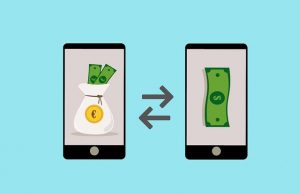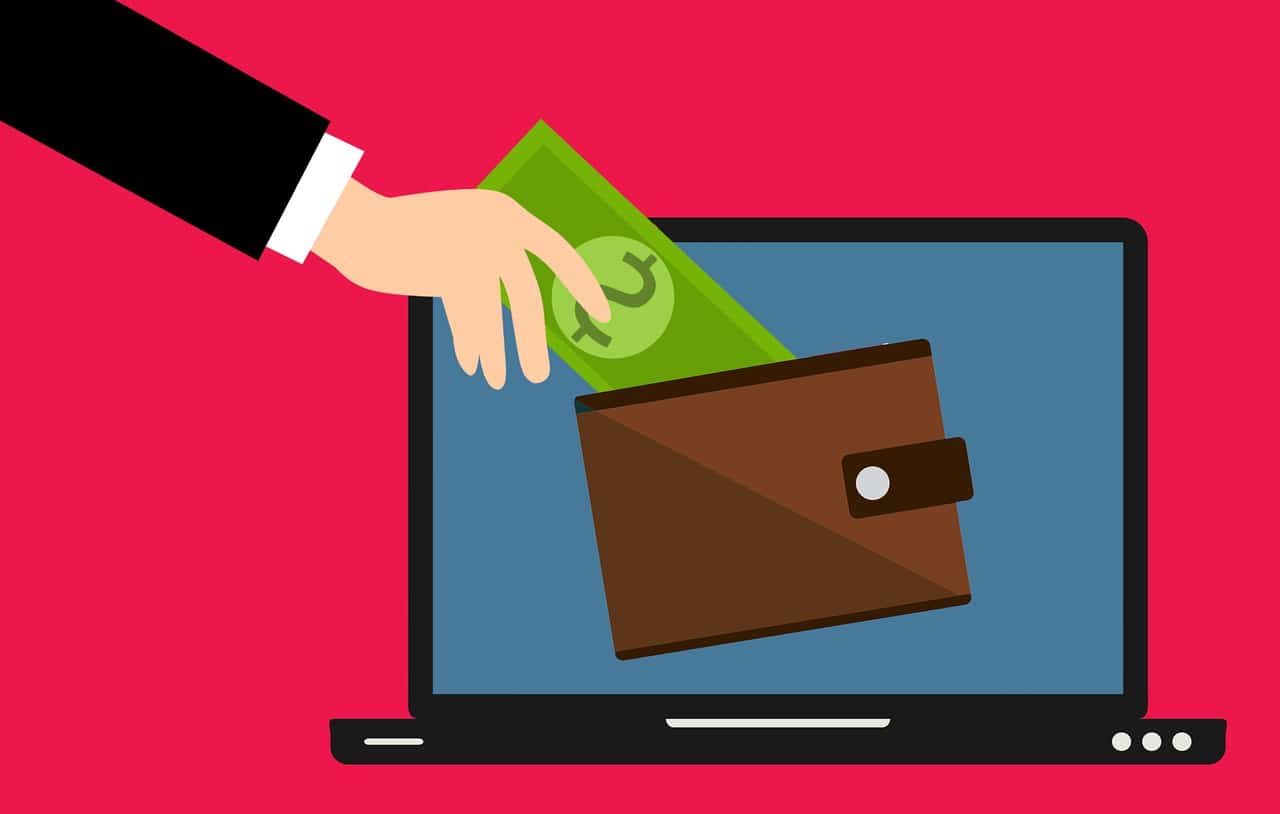2020 will go down in history for a whole lot of reasons, and most are ones we will be keen to forget. However, an interesting side-effect to the headline events of 2020 is that this is the year we spent more of our time and money in cyberspace than ever before. Now despite the fact that more of us are doing it than ever, keying in our personal banking details always leads to a certain degree of anxiety. Just who has access to this information, and what will they do with it?
Using a digital wallet is an elegant and secure alternative. It essentially provides an extra buffer to protect your hard-earned money, as there is no need to share your main bank account details with third party vendors. Digital wallets are also designed specifically for the digital world. What this means is that transactions are fast, as well as secure. For example, suppose you buy a jacket online, but it doesn’t fit, and you need to return it for a refund. Pay using a digital wallet like PayPal, and your money will typically land back in the digital account almost instantly when the refund is processed. Pay using your debit card, and the processing time can be several days.
If you are thinking of opening up a digital wallet, there are plenty to choose from. Which one is right for you depends on the type of purchases you make and the device you use to surf the net. Here, we will guide you through some of the most popular online wallets.

PayPal
PayPal has the distinction of being the first digital wallet to really hit the mainstream, bringing the concept of digital transactions to the masses before the turn on the millennium. This is thanks to the shrewd partnerships it entered into with websites like eBay. These days, the majority of retailers accept PayPal. These include the majority of fashion brands as well as many health and beauty retailers and tech sites.
PayPal is also a popular payment platform in the freelancer community, especially in the growing gig economy. It’s a fast and straightforward way to make payments in multiple currencies and across international borders.
PayPal has reacted to challenges from new and innovative competitors by always keeping its product offering fresh. For example, its mobile app allows people to use PayPal in the physical world and to pay with a touch of their smartphone.
So is the original the best? Despite its mass popularity, there are a few downsides you need to know about. If you are not verified, there is a cap on the size and number of transactions you can make. Getting verified can be done over the phone, but does involve a fair amount of form filling. Still, you only have to do it once. PayPal also has a habit of freezing accounts without prior warning and with little explanation. Getting the account unfrozen usually involves providing documentary evidence to explain whatever transactions have been flagged as suspicious. Again, it is not usually complicated, but it can take up to 48 hours to resolve.
PayPal fees are also something of an enigma. While most retail purchases do not incur a fee, you can be charged for business transactions. There is also a fee of just over four percent for currency conversions.
Neteller
This e-wallet is massively popular in the igaming arena, and remains the payment method of choice among casino players. There’s more guidance on that specific area here on this site, along with some other useful tips. However, it is important to understand that Neteller is not just for financing gambling.
The wallet is accepted by thousands of online sellers across multiple sectors. It’s a good choice if you make a lot of online purchases, as you will be rewarded points for each transaction. These soon mount up and can be exchanged for gift cards or even cashback rewards.
Neteller has gained a reputation as the most secure payment wallet around. Doubtless, that is part of the reason it is so popular with the high roller casino gamers. The platform holds all funds in secure trust accounts and is constantly updating its security protocols to be right at the cutting edge.
Instant transactions, great rewards and top notch security make Neteller sound like an obvious choice, so what’s the catch? That can be answered in one word: fees. All those good things come at a cost, and you will typically be charged a 2.5 percent deposit fee. Some transactions also incur withdrawal fees, depending on where you are sending the funds. There is also a four percent fee for currency conversions.
The only other area of concern with Neteller is the customer support, or more accurately, the lack of it. While you can, with a little determination and patience, speak to a human at PayPal 24/7, Neteller’s support lines are only manned during office hours, and you will be strongly urged to send an email and wait a day or two for a response.
Payoneer
If you make plenty of international, commercial or B2B payments, Payoneer is well worth your consideration. You can open up an account absolutely free and every account holder is issued with a free virtual wallet.
It is touted as the world’s leading online payment platform and offers accounts in all the major currencies, including USD, CAD, GBP, EUR and various others. Payoneer outscores the other providers we have discussed so far when it comes to international payments because of its super low fees for transactions and currency conversion. 0.5 percent is dramatically lower than the amount you will pay to PayPal or Neteller.
These factor make it the tool of choice for small business entrepreneurs, freelancers, affiliate marketers and the like. It is also used by the international giants with which many of these people operate. Companies like Airbnb, Upwork and Fiverr all pay their members using the Payoneer platform.
On top of all that, Payoneer offers users a prepaid Mastercard. Here, however, you need to proceed with caution, as it comes with an annual fee, and you will also be charged every time you load it up. There are also some spending limits, although these are only likely to become an issue if you are a business user making multiple transactions in the thousands of dollars. These shortcomings aside, Payoneer is unrivalled for international transactions, and can ultimately save you a small fortune in currency fees compared to its rivals.
Apple, Google and Samsung Pay
We will mention these together, as they are so similar – the one you use simply depends on your smartphone preferences and whether you have an iOS or Android device. These are the e-wallets that first broke through to the physical world and made it possible to buy a coffee with a wave of your handset.
For sheer convenience, they are difficult to beat. An exceptionally neat feature is that there is no need to provide additional proof of identity when making a purchase, as all the necessary authentication takes place on the handset.
Despite initial skepticism and rumors, independent cybersecurity experts agree that they are highly secure. Authentication varies slightly between the apps. Apple Pay or Samsung Pay users can authenticate their purchases by either using a PIN or biometrics. Google Pay only requires the handset to be unlocked and you can shop away to your heart’s content.
This does, of course, mean that you need to have good security on your phone, as leaving it unattended and unlocked is tantamount to leaving a purse or wallet lying around bursting with cash. However, it is worth noting that if the worst happens and your phone is lost or stolen, all three services can be remotely disabled with immediate effect. This will also wipe all your financial information and transactions from the handset.
Some people are still a little unsure about the security of these apps, but let’s put it this way – they are certainly far safer than carrying a billfold of notes in your pocket. In the final analysis, if you typically make your online transactions using a mobile device, there is really no need to look any further.

Choosing your wallet
Business or personal, regular or occasional, retail or B2B, domestic or international, mobile or desktop? These are some of the important questions that you need to ask yourself in order to find the online wallet that is right for your purposes.
There are plenty more beside the ones we have discussed here, but these are among the most popular among very specific groups, and with good reason. Today, digital transactions are all around us, and they will become still more commonplace over the coming months and years. Set yourself up with the right online wallet now and you can make transactions in the virtual world in confidence and safety, future-proofing yourself and your finances against whatever the world might throw at us in 2021 and beyond.

